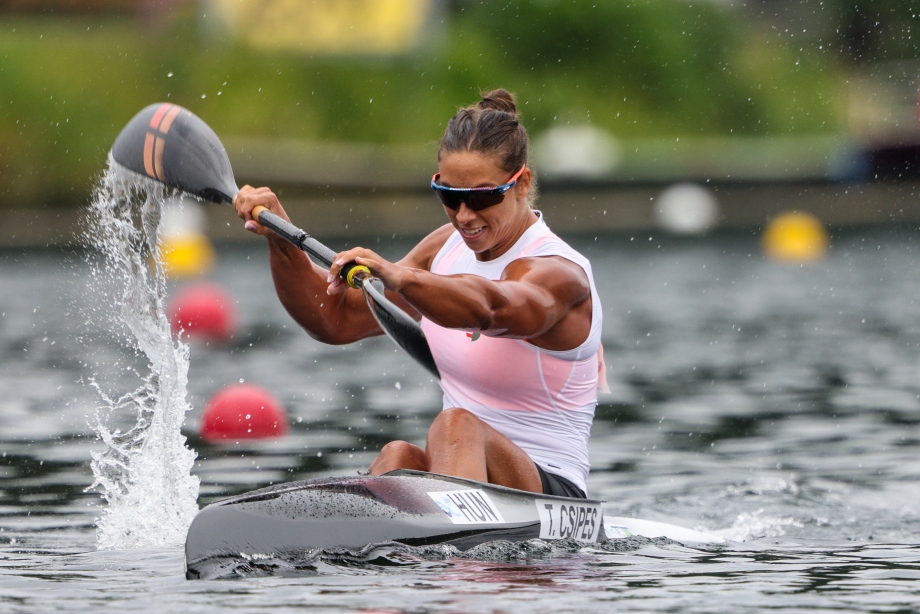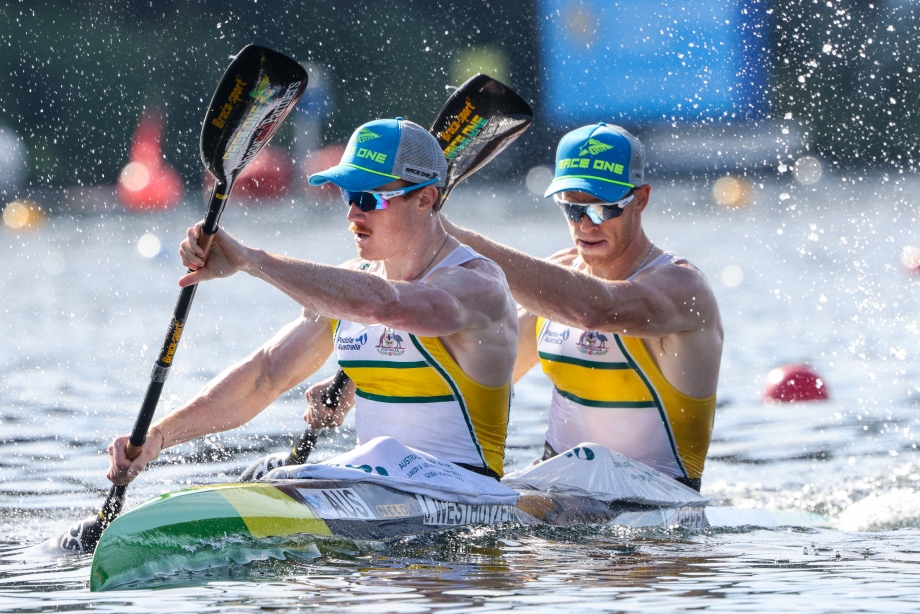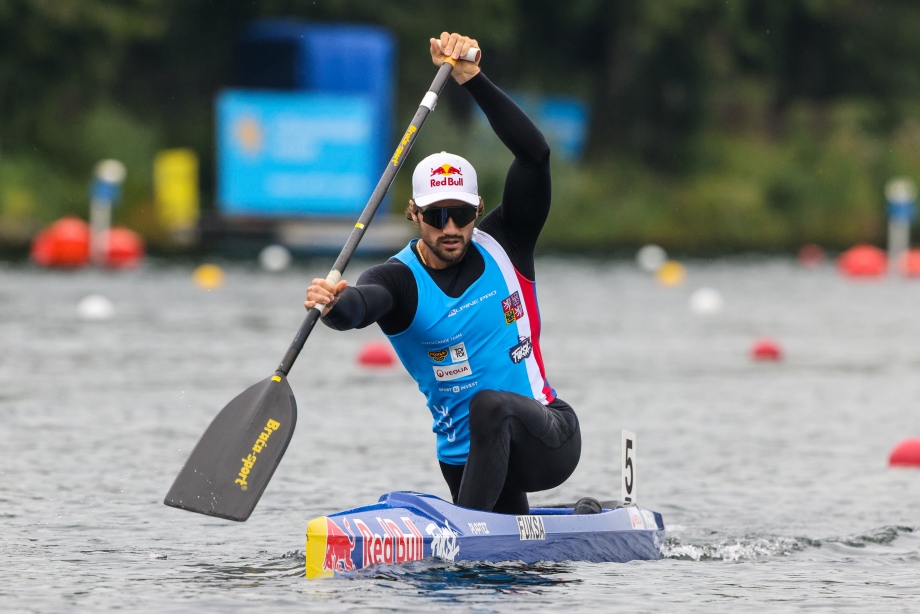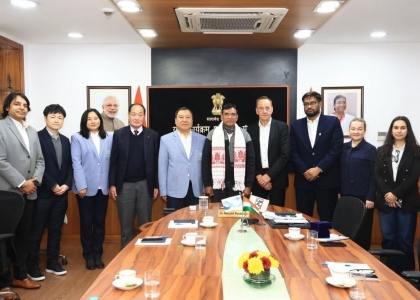The equation has suddenly become a lot simpler for a handful of athletes who hope to not only become world champions, but also book their countries a quota spot for next year’s Paris Olympics.
In the women’s C2 500 nine boats have now been confirmed for Saturday’s final, of which the top eight will earn Paris 2024 quotas. The final fields for the women’s K1 500, and the men’s C1 and K1 1000 have also been set.
Defending Olympic and world champions Shixiao Xu and Mengya Sun showed they will once again be the team to beat in the women’s C2 500. The Chinese pair were the fastest qualifiers.
The remainder of the final field includes boats from Canada, Moldova, Poland, Cuba, Germany, Spain, Hungary and Ukraine. Only the boat which finishes last in the final will miss a quota.
Canada’s Sloan MacKenzie and Katie Vincent also won their heat, with Vincent hoping to qualify for her second Olympics.
“It’s exciting, but we can’t get ahead of ourselves, there’s still more work to do,” Vincent said.
“We’ve come a long way in the past year, and we’re just excited to show that off in the final. We’re aiming to become world champions, that comes with the territory. That comes with a quota, so we need to dream big, go for it and see where we end up.”

Hungary’s Tamara Csipes, the Olympic silver medalist in the women’s K1 500, set the quickest time in Thursday’s semi-finals ahead of New Zealand’s Olympic champion, Lisa Carrington, with six quota slots available in the final.
In the men’s C1 1000, where five quotas can be earned in the final, it was Czech Martin Fuksa who was the quickest qualifier.
In the men’s K1 1000 it was Tokyo Olympic silver medalist Adam Varga from Hungary who set the fastest qualifying time. The nine men in the final will be competing for six Paris quotas.
In the men’s K2 500 the Australian pairing of Tom Green and Jean Van Der Westhuyzen showed some of their best form since winning K2 1000 Olympic gold in Tokyo, setting the fastest time in Thursday morning heats.
“If you don’t have quotas, you’re not going to Paris, so trying to get the full quota for us is the absolute goal, then we can start focusing on Paris,” Green said.
“Obviously in the long game Paris is always in the front of the mind, but at the end of the day we’ve got to get there first.”

In the women’s K2 500 the fastest qualifying time was put down by Germany’s Paulina Paszek and Jule Hake. There was also a strong performance for a brand new combination from New Zealand, Aimee Fisher and Danielle MacKenzie.
Fisher is a former sprint world champion who only recently rejoined the New Zealand team, while MacKenzie is a former ICF Ocean Racing world champion.
“It’s crazy, I’ve been doing a semi-professional ironwoman series for the past eight years, so to come across and just focus on one discipline, it’s been super challenging at times, but we’re athletes and we like to take on a challenge,” MacKenzie said.
“It’s so good to be back on the world scene, and especially being back in the team boats too. It’s been about three or four years since I was last in a team boat, so I’m loving it. It’s a really special world championships this one,” Fisher said.
In the men’s C2 500 it was China’s Hao Lui and Ji Bowen who set the fastest time. Reigning world champions Cayetano Garcia and Pablo Martinez also comfortably progressed to the semi-finals.
“We feel good, we know that was out first race of the world championships, and you always have a sensational feeling,” Martinez said.
“We come here with a goal for a medal, and that medal will give us a ticket for Paris. We’ll go race by race with a focus on repeating what we did last year.”
Eight canoe sprint medals will be decided on Friday.
Pics by Bence Vekassy





